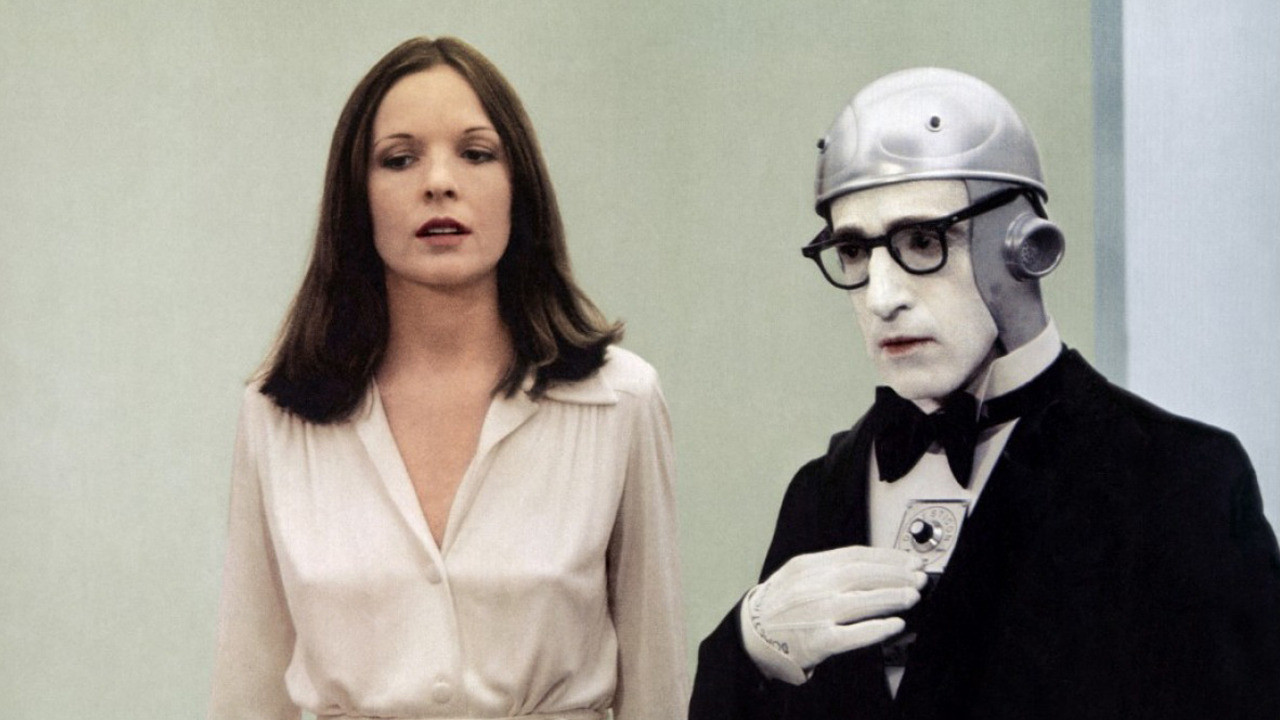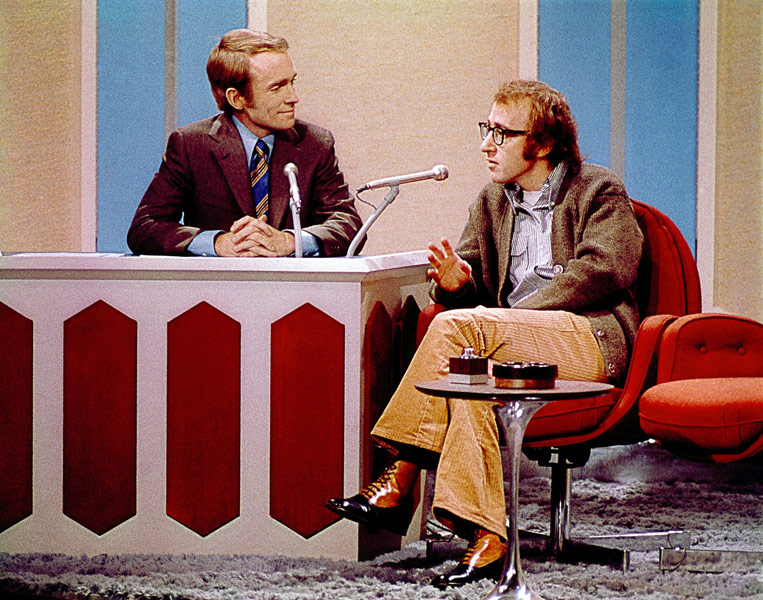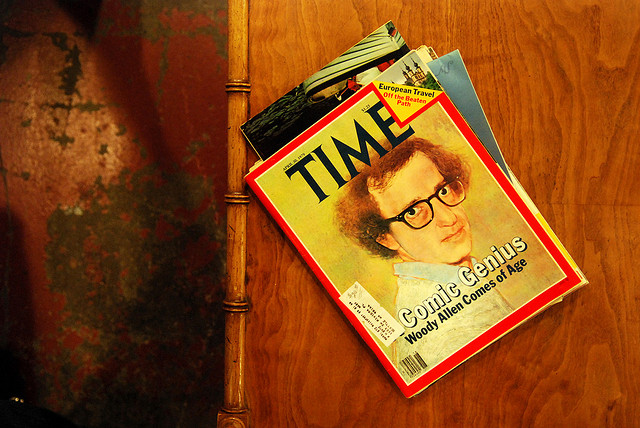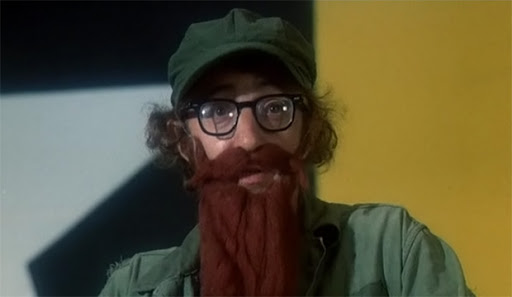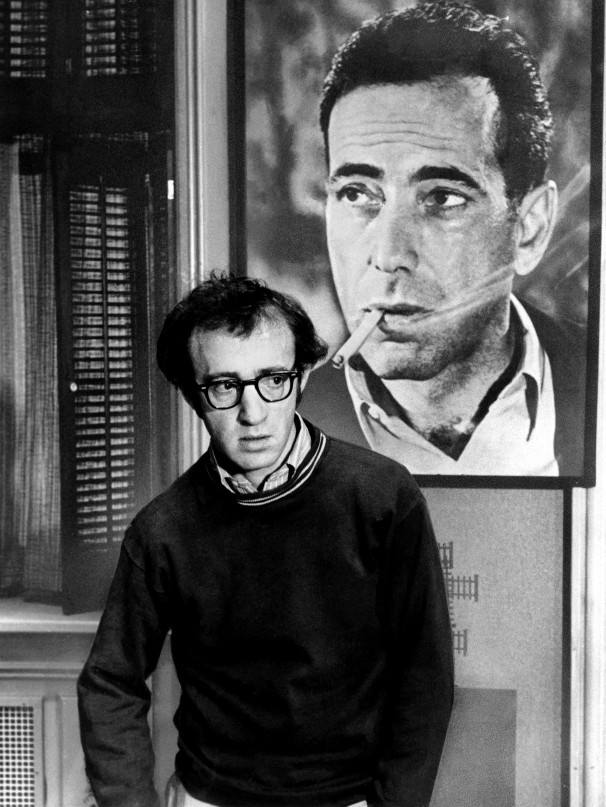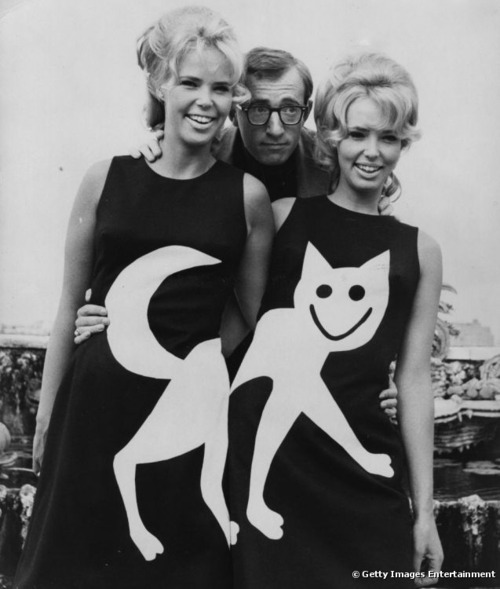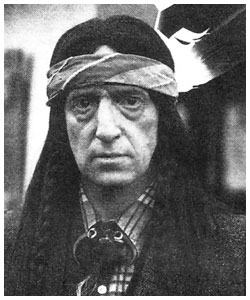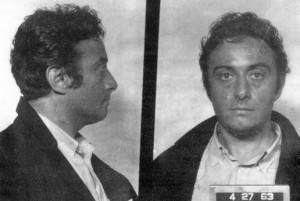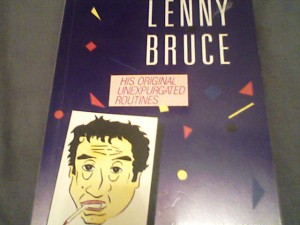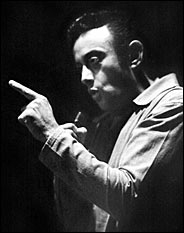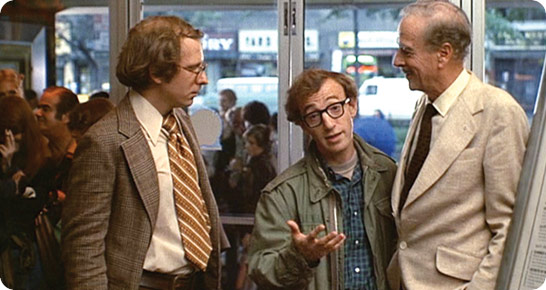
In 1979, Joan Didion wrote for an essay for the New York Review of Books about a trio of Woody Allen films–Manhattan, Annie Hall and Interiors–commenting that the filmmaker’s adult characters had taken on the qualities of adolescents, becoming consumed with their place in the world–charting their loves and losses–listing their faves and likes, as if writing in a school yearbook in the air. And this, of course, was long before social networks gave us the tools to completely realize such a thing–to become a global village that’s connected if not mature. The opening:
“Self-absorption is general, as is self-doubt. In the large coastal cities of the United States this summer many people wanted to be dressed in ‘real linen,’ cut by Calvin Klein to wrinkle, which implies real money. In the large coastal cities of the United States this summer many people wanted to be served the perfect vegetable terrine. It was a summer in which only have-nots wanted a cigarette or a vodka-and-tonic or a charcoal-broiled steak. It was a summer in which the more hopeful members of the society wanted roller skates, and stood in line to see Woody Allen’s Manhattan, a picture in which, toward the end, the Woody Allen character makes a list of reasons to stay alive. ‘Groucho Marx’ is one reason, and ‘Willie Mays’ is another. The second movement of Mozart’s ‘Jupiter’ Symphony. Louis Armstrong’s ‘Potato Head Blues.’ Flaubert’s A Sentimental Education. This list is modishly eclectic, a trace wry, definitely OK with real linen; and notable, as raisons d’être go, in that every experience it evokes is essentially passive. This list of Woody Allen’s is the ultimate consumer report, and the extent to which it has been quoted approvingly suggests a new class in America, a subworld of people rigid with apprehension that they will die wearing the wrong sneaker, naming the wrong symphony, preferring Madame Bovary.
What is arresting about these recent ‘serious’ pictures of Woody Allen’s, about Annie Hall and Interiors as well as Manhattan, is not the way they work as pictures but the way they work with audiences. The people who go to see these pictures, who analyze them and write about them and argue the deeper implications in their texts and subtexts, seem to agree that the world onscreen pretty much mirrors the world as they know it. This is interesting, and rather astonishing, since the peculiar and hermetic self-regard in Annie Hall andInteriors and Manhattan would seem nothing with which large numbers of people would want to identify. The characters in these pictures are, at best, trying. They are morose. They have bad manners. They seem to take long walks and go to smart restaurants only to ask one another hard questions. ‘Are you serious about Tracy?’ the Michael Murphy character asks the Woody Allen character in Manhattan. ‘Are you still hung up on Yale?’ the Woody Allen character asks the Diane Keaton character. ‘I think I’m still in love with Yale,’ she confesses several scenes later. ‘You are?’ he counters, ‘or you think you are?’ All of the characters in Woody Allen pictures not only ask these questions but actually answer them, on camera, and then, usually in another restaurant, listen raptly to third-party analyses of their own questions and answers.
‘How come you guys got divorced?’ they ask each other with real interest, and, on a more rhetorical level, ‘why are you so hostile,’ and ‘why can’t you just once in a while consider my needs.’ (‘I’m sick of your needs’ is the way Diane Keaton answers this question in Interiors, one of the few lucid moments in the picture.)What does she say, these people ask incessantly, what does she say and what does he say and, finally, inevitably, ‘what does your analyst say.’ These people have, on certain subjects, extraordinary attention spans. When Natalie Gittelson of The New York Times Magazine recently asked Woody Allen how his own analysis was going after twenty-two years, he answered this way: ‘It’s very slow…but an hour a day, talking about your emotions, hopes, angers, disappointments, with someone who’s trained to evaluate this material—over a period of years, you’re bound to get more in touch with feelings than someone who makes no effort.’
Well, yes and (apparently) no. Over a period of twenty-two years ‘you’re bound’ only to get older, barring nasty surprises. This notion of oneself as a kind of continuing career—something to work at, work on, ‘make an effort’ for and subject to an hour a day of emotional Nautilus training, all in the interests not of attaining grace but of improving one’s ‘relationships’—is fairly recent in the world, at least in the world not inhabited entirely by adolescents. In fact the paradigm for the action in these recent Woody Allen movies is high school. The characters in Manhattan and Annie Hall and Interiors are, with one exception, presented as adults, as sentient men and women in the most productive years of their lives, but their concerns and conversations are those of clever children, ‘class brains,’ acting out a yearbook fantasy of adult life.”

